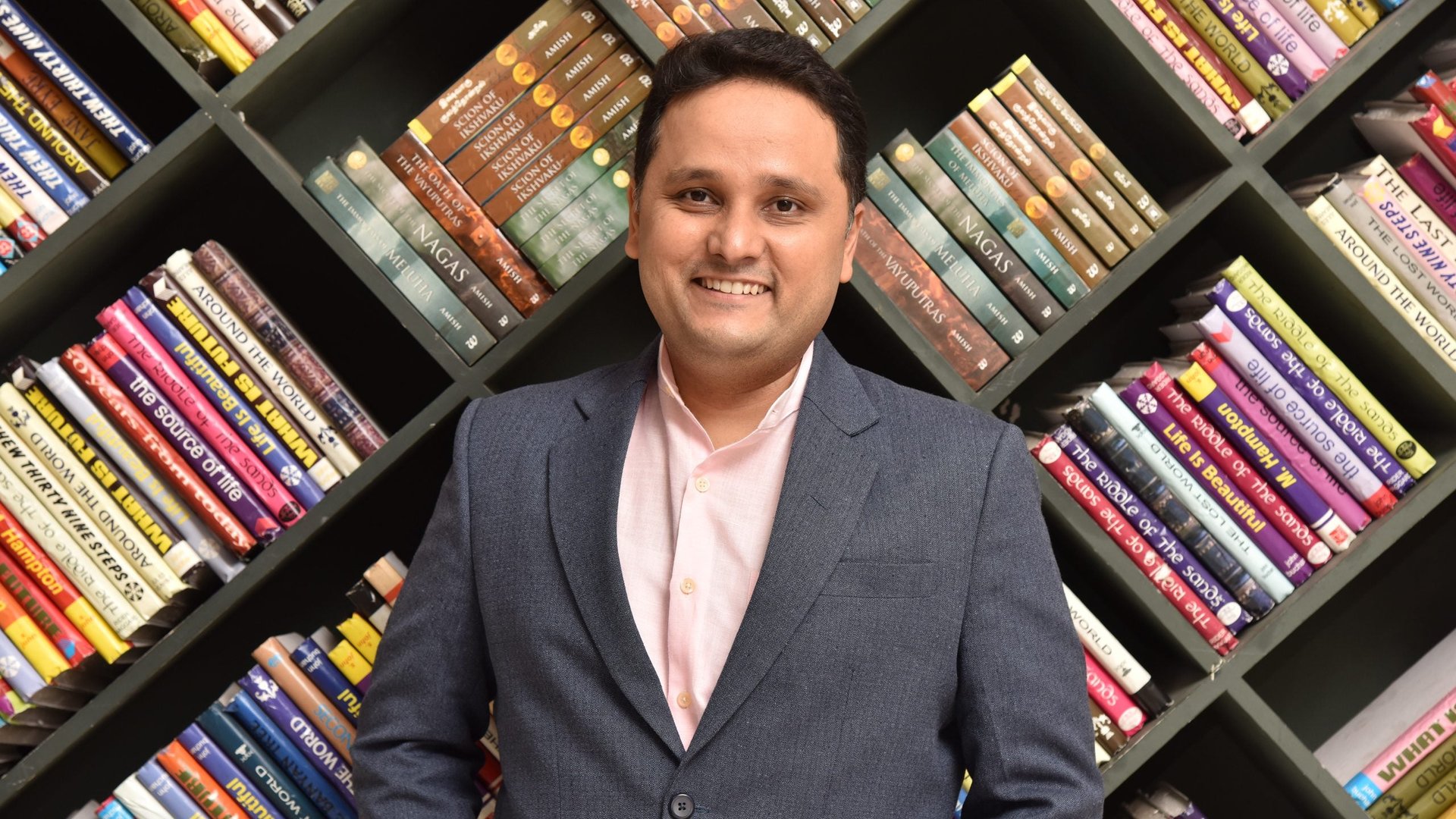Amish Tripathi wants to write a hundred books, one cream biscuit at a time
In just nine years since he self-published his first book, author Amish Tripathi has six more to his credit. And in the next 20 years, he wants to have written 100 books. That’s over four books every year.


In just nine years since he self-published his first book, author Amish Tripathi has six more to his credit. And in the next 20 years, he wants to have written 100 books. That’s over four books every year.
Some would say he’s being audacious, but Tripathi is unfazed. The story behind how his first book, a retelling of the mythology behind Hindu god Shiva, was published is now part of an urban legend. He was rejected by 20 publishers when he wrote Immortals of Meluha, prompting Tripathi and his wife, Preeti, to self-publish. Anuj Bahri, who owns Bahrisons bookstores in New Delhi, was the only literary agent who backed Tripathi’s project.
The gamble paid off remarkably well. Tripathi wrote two more books as part of the Shiva trilogy, catapulting him into India’s bestsellers’ list. Over five million copies of his books have been sold by now, translated into 18 languages. Tripathi is today a household name in India, joining the ranks of best-selling authors Ashwin Sanghi and Chetan Bhagat. He will also be joining the Quartz community of leaders when our new app launches in November in India.
Recognition has now come in other ways, too. Tripathi will head the Nehru Centre in London, which acts as a cultural interface between India and the UK. He spoke to Quartz about how he researches for his books, his love for cream biscuits, and his plans for his time in London. Edited excerpts:
Do you have something specific that helps you write? How do you maintain a writing discipline?
I listen to music while writing, and that has been a constant habit. I am not picky about what kind of music, but I generally listen to the genre that matches the scene I’m writing. While I do listen to instrumental music sometimes, it isn’t a necessity. I can zone out the lyrics of a song while I write.
I also eat lots of cream biscuits. They’re usually those that we ate as children—orange cream, Bourbon, and Jim Jam.
You aim to write 100 books in 20 years. That sounds rather impossible. How do you manage productivity?
I waste very little time doing anything else. All I do is read and write. I almost entirely switch off and go for events around my book launch events. The same goes for giving interviews. For instance, I use my time in the car to do these calls. I don’t spend too much time at literature festivals either. I go for just four or five every year. I don’t go to any parties, either. There’s enough time if you don’t waste time. Though I do feel I have to quicken my writing pace.
How do you balance history and mythology, or belief and fact, in times when religion can be contentious?
I simply read a lot. A lot of research also comes from my family. My grandfather was a pandit (priest) in Varanasi and I’ve heard rich mythological stories from him. There are so many facets of religion that come to fore with these stories.
The rest I leave to lord Shiva. Research is like buying ingredients, how the recipe comes together is up to lord Shiva. I am like a channel and he tells me what to write.
Who are your core readers? Do you write keeping that readership in mind?
When I sit down to write a book, I don’t care at all about what readers or editors will think about my writing. I only write the stories I want told.
Having said that, most of my readers are largely the youth, even though I wasn’t writing for that target audience. This is particularly ironic because publishers rejected Immortals of Meluha as the subject was not something they said the youth was interested in. But today, a vast majority of my readers are 30 or less, basically Gen Z and millennials.
What can your readers expect next? Are you planning to experiment with different media?
My books could be adapted into films, and I have already signed a deal for the Shiva trilogy. I am not sure if I will ever write a movie script, though I am certainly open to other media. At this point in time, I am most committed to writing. I do keep thinking about graphic novels, but there isn’t much of a market in India unfortunately, especially compared to expense and effort it takes to put one book together. I am certainly thinking of different genres for my books. For instance, I have a story in mind that’s set in the modern day that pulls in gaming and even time travel. Maybe I will pick that up after I finish writing the Ram Chandra series.
What will your work at Nehru Centre in London entail? What are your plans?
I have been appointed the director of the Nehru Centre, which is a diplomatic role, and I am very grateful to be representing India. It is a little too early to speak about my plans at the moment because I am still in the process of moving to London. But I do feel that there is a lot that India can share about its culture. We are one of the few surviving ancient cultures, most others in the world have been wiped out. Indian culture is also rare because we can marry tradition and liberalism in a world where one is generally told to pick one. I hope I can take this aspect to the world and talk about it.